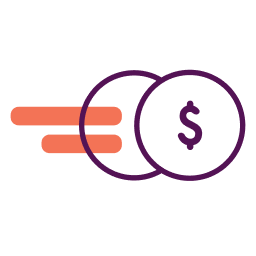The government, despite what the cool kids are saying, is there to help you. From Pell Grants for students to various incentives for first-time home buyers, there are options to help you out. But what about your small business and funding options for your business needs? Starting your own venture is expensive, and access to venture capital or grant programs might not be available, especially if your business is just getting off the ground. A Nav survey found that 62% of business owners used their personal savings to fund their business — whether it’s an established or new business. To reduce the hurt and the impact on your own wallet and preserve or kick off your cash flow, it’s wise to seek out financial assistance through grants, credit unions, or a business loan from the federal government for help.
So, then, are there options available from the government to help fund your startup? Let’s take a look.
The Short Answer
You’re here for a simple answer, and that answer is: probably. If you’re looking to the government for funding for your business, look no further (or anywhere else, really) than the U.S. Small Business Administration (SBA). The coronavirus showed us that the government is willing to step in to provide loan funds to businesses in hopes to increase economic development. There are a few loan products the SBA offers small business borrowers, each with their own requirements, for which your business may qualify.
Government Business Loan Types
The SBA offers three types of startup loans as financing options:
- SBA Microloan
- SBA Community Advantage Loan
- SBA 7(a) loan
What sets these apart from most other business loans is the lack of a requirement for time in business. Most lenders will require that you have at least two years in business before they can approve you, but these three loan types omit the requirement, giving you an advantage in getting business financing.
SBA Microloan
The SBA Microloan is, as the name suggests, a smaller-than-normal loan. Where traditional loans have a limit of up to $130,000, the SBA Microloan caps out at a $50,000 limit. The low dollar amount and relatively higher-than-normal interest rate (8-13%) are because of the fewer requirements and the subsequently higher risk for the lender. While $50,000 isn’t going to last you decades, it’s substantial for new entrepreneurs looking to get their operation off the ground.
You can use an SBA Microloan for working capital, buying inventory or machinery/equipment, or adding furniture or fixtures. It can’t be used for real estate or dealing with a preexisting date. You must have a credit score of at least 640, some collateral, and there may be a personal guarantee involved.
SBA Community Advantage Loan
A branch of the SBA Microloan program, the Community Advantage Loan program is designed to provide loans to businesses in an underserved community. It has a higher loan limit of $50,000-$250,000, and a lower interest rate of 7-9%.
Unlike the Microloan, requirements will vary from lender to lender, so it’s best to build a solid relationship with a lender who offers this product. Fulfilling the requirement of helping an underserved community is key, and your financial history and time in business likely won’t be as important as they would be with other financial institutions.
SBA 7(a) Loan
The 7(a) Loan is the bread and butter of the SBA. It’s easily the most popular SBA product among small businesses, but startups can qualify as well due to the lack of the time-in-business requirement. Still, then, it’s a tough loan to get.
Eligibility requirements state that you’ll need a credit score of at least 680, no recent derogatories such as bankruptcies, and collateral for any loan amount over $25,000. If you have a good credit score, the rest of the requirements aren’t too complicated to check off.
Local small business development centers (SBDC’s) can be found nationwide and can also help you navigate startup funding or technical assistance while also giving you the qualifying criteria. However, there’s a list of businesses that are automatically disqualified from applying for an SBA loan. If your startup business includes what’s mentioned below, you’re ineligible to apply:
- Gambling
- Investment and lending
- Pyramid sales
- Businesses where the owner is on parole
For the full list, you can head to the SBA website, which details more.
Comparing Government Loans With Bank Lenders
The Small Business Administration (SBA) backs SBA loans, but banks do not. Banks could recommend SBA loans to clients with a higher chance of default. In comparison to regular bank loans, SBA loans offer more flexible limitations, interest rates, and payment terms. Because the SBA does not make small business loans, it only guarantees loans from SBA-approved lenders like banks and online commercial lenders. These loans are guaranteed by the government, which means that an SBA-approved lender may provide them to small firms at cheap interest rates since the government has agreed to pay back 85 percent of the loan if it defaults.
Small business loans originated by “traditional” banks for low-risk companies are available from several SBA-recommended lenders. These banks have been certified by the SBA and will examine a company’s credit history as well as its other characteristics in order to determine its risk level. An SBA loan, which is already backed by the federal government, maybe the better option if the bank feels the business is at greater financial risk.
| Type of Small Business Loan | Good For | Estimated APR | Required Credit Score |
|---|---|---|---|
| SBA Loans | Low-interest working capital; refinancing debt, equipment | 1-15% | 155 FICO SBSS *some lenders may require higher |
| Traditional Bank Loans | Versatile loans for a variety of purposes | 4-15% | 680+ FICO |
| Merchant Cash Advance | Quick access to capital if you don’t have great credit | 10-350% | 550 FICO *sometimes no score is required |
| Business Lines of Credit | Access to funds when you need them | 10-90% | 500 – 680+ FICO |
| Microloans | Businesses with thin credit profiles looking for small loan amounts | 12-18% | Varies |
| Cash Flow Loans | Quick access to cash without great credit | 11.0-90% | 600 FICO |
| Alternative Online Loans | Quick access to cash without great credit | 11.0-90% | 600+ FICO |
| Business Credit Cards | Fast turnaround time with less required documentation | 7-30% | 650+ FICO |
| Equity Crowdfunding | Capital without having to repay; experienced investors can act as mentors | Fees often total 5% of amount raised | n/a |
| Reward Crowdfunding | Testing out your idea; capital you don’t have to repay | Crowdfunding platform: 0-5% Payment processing: 3%+$.30 per transaction | n/a |
| Equipment Financing | Capital to buy equipment that doesn’t require asset (other then equipment) | 15-35% | 620+ FICO |
| Invoice Financing | Leveraging future accounts receivable | 15-25% | n/a |
| Trade Credit | Building credit | 5-25% | May or may not be applicable |
How to Prepare to Apply for a Business Loan from the Government
Ultimately, it’s better to be well-prepared than underprepared when you’re looking to apply for a business loan from the government. Review your business plan and identify what’s the best course of action for the stage your business is currently in and the projection of where you see its growth. Without a solid, well-written, and well-planned business plan, you’ll have a hard time getting any loan or small business grant, let alone an SBA loan.
Keeping an eye on your personal and business credit scores will be key as well (you can do so for free with Nav). Monitoring your credit will keep you in the know of which funding sources you can qualify for versus the ones you can’t. In addition, you never want to bite off more than you can chew and should be diligent with understanding your repayment terms so that you can stay in good standing with your credit and government agencies.
Final Thoughts
Remember, the government has an interest in the success of your (tax-paying) business, especially as it pertains to economic growth. Explore your options, get ready, and improve your chances of approval by following the steps and resources provided in this article. Also, don’t forget that Nav offers small business owners tools and resources to help improve their chances of getting approved for business credit cards, small business loans, and business startup loans through their commercialization process.
This article was originally written on July 16, 2018 and updated on February 8, 2023.



Need $6000+ for immediate expense. Have $300000+ in product to ship. Already have a buyer. $millions more ready to ship. Please help quickly.
If you need $6000 quickly you may want to consider a small business credit card. It’s one of the fastest and most flexible forms of financing.
I have looked into starting my own Hotshot business I have my authorization and IME number I just need funding for the truck and trailer I was looking at the micro loan. What do I need to do to apply for that loan. My credit is low so is that a problem
Each microlender has its own requirements. If you’re not working with your local SCORE or Small Business Development Center (SBDC) that would be a great start.
I would like to get a small business loan to start a small tree chipping business.
Anthony – you may find this video on startup financing helpful.
I would like to find a small loan for my small business Makeup by Rossi I am a Makeup artist . than you
Helpful article, which broke down the three types of government based loans, however, a little short on the description of the 7(a) loan. Why is it the hardest but most desirable loan to acquire?
Hi Sheridan, you can find more info about the 7(a) loan here: https://www.nav.com/resource/sba-loans-7a-504/
The 7(a) loan requirements are actually less stringent than some types of SBA loans, however it requires good credit to qualify (there is also a minimum FICO SBSS business credit score you must meet in order to prequalify for some SBA 7(a) loans).
Looking to buy a Pool cleaning company
Hello Nav,
I often hear from individuals and businesses who offer to help me to establish Business Credit without using my Social Security Number for establishing a personal guarantee. The fees they charge are usually in the hundreds, even thousands of dollars. Are these Scams? Can I establish business credit on my own without the help of these individuals, at no cost, the same as establishing personal credit?
Hi Jason, there are places to get and build your business credit that have fees that are not scams. This article has more information.